- Administrator
- Albums and Singles

This new collaborative project pairs one of the UK’s most gifted and unconventional drone artists, Chris Herbert, with Spanish sound artist Elías Merino. The duo were initially brought together by their shared interest in creating lushly textured soundscapes, but each has a very different process for arriving there: Herbert is quite fond of natural and non-musical "found" sounds, while Merino's work is primarily computer-generated. Their commonalities handily eclipse any potential aesthetic clashes though, as Folds sounds like an absolutely gorgeous drone album enlivened by a churning undercurrent of grainy textures and sneakily obscured small-scale kinetic transformations. I suppose that description could probably apply to much of Herbert's solo work as well, but Folds definitely feels like an extra layer of depth, textural complexity, and visceral power has been added to the picture. Merino's presence has taken something already wonderful and elevated it to a whole new level.
It feels exasperatingly reductionist to describe Ogive's work as "drone," even though that term is a perfectly apt one structurally: Folds' five pieces are all built from a fairly straightforward foundation of hazily dreamlike thrum, crackle, and hiss.Sadly, no one has yet coined a fitting genre name for something that is essentially drone music, but on a much larger and more transcendent scale, nor is there a special designation for drone that vibrantly buzzes with a dazzling ecosystem of intricate, dynamic details.Folds, however, delivers on both of those fronts from start to finish.As such, it demands to be played loudly, as it feels like a force of nature and should be experienced that way.On the opening "Dehiscence," for example, Ogive evoke nothing less than a massive, crashing wave of beauty–it slowly rolls in with rumbling, seismic power, then becomes an overwhelming and completely immersive sensory experience.If a tidal wave washing over a town could be stripped of everything negative and viewed strictly as a slow-motion aesthetic phenomenon, it would probably be a lot like "Dehiscence," completely transforming the landscape and creating an otherworldly and sun-dappled state of suspended animation: everything normally in the town is still there, but radically recontextualized and blurred into unrecognizability.At times, the underwater world of "Dehiscence" has pockets of violence and danger, but it all eventually recedes to leave only gently rippling pools and metaphorical dripping eaves in its wake.In essence, that tableau is what every piece on Folds seems to strive for (and achieve): taking elements of the familiar and transforming them into something alien, new, and weirdly beautiful...and doing it in impressively decisive and enveloping fashion.
On the following "Isomerica," the illusion is a bit easier to deconstruct, as it sounds like a field recording of a clanking and grinding factory floor smoothed over with a languorous wash of shifting, blurry harmonies.It is not any less heavenly than its processor, however.In fact, it even transcends it in some respects, unexpectedly blossoming into what feels like a soft-focus and half-remembered fireworks display near the end.Later, "Refractaise" further highlights Ogive's unconventional genius for texture, as the bed of drones feels like an undulating and visceral machine-like hum that unpredictable swells into grinding and sizzling crescendos.There are also some ghostly sustained tones creating shifting harmonies, but it never sounds like there are any human musicians playing human instruments involved–it sounds instead like I am having an especially real and physical nightmare set in a haunted factory.Elsewhere, "Rifts" feels like a rhythmically pulsing sea of crackling radio waves and shuddering machinery.Gradually, it becomes increasingly disrupted by subterranean surges that cohere into a heavy new rhythm.That industrial churning ultimately gives way to a comparatively pastoral second half...sort of.The drones certainly subside to a roiling simmer and some happy ducks lend their voices to the scene, but it still takes a while before the rumbling subsides enough that it no longer feels like the ground might suddenly tear wide open at any time.The closing "Superhabitat" unexpectedly diverges a bit from the usual winning formula, playing up Ogive’s more straightforward drone aspects a bit more than the other pieces, but is not any weaker for it.Instead, it simply feels like a single sustained and undulating organ chord jacked up to engulfing immensity through plenty of grainy, distorted layering.It sounds a lot like prime Tim Hecker, but a Tim Hecker who found one perfect chord and simply decided to hypnotically ride it out into eternity.
Naturally, a great deal of Folds' success is due to the seamless blurring together of both artists' distinctive and unusual approaches to pure sound: this album is instantly mesmerizing primarily because it feels like an immense and shuddering organic entity.Herbert and Merino are extremely adept at erasing any traces of themselves, and both have a seemingly infallible intuition for avoiding missteps.Any recognizable instruments, deliberate chord changes, or melodies would have unavoidably ruined the spell, regardless of their compositional utility.Consequently, all are nowhere to be found.Instead, Folds seems to have found a post-compositional path where both artists egolessly allowed their sounds and their tools to shape a "natural" flow.Of course, there is also a second piece to the puzzle: such an approach would just be a cool conceptual experiment if it did not sound great, so it is fortunate that Folds is also a rich, muscular, and vibrant tour de force of production skill.Lovely spectral harmonies and subtle, sharply realized textures abound, but they are always in service of a whole that often feels like being consumed by a heavenly avalanche.No one will make a better drone album than this in 2017.
Samples:
 
Read More
- Administrator
- Albums and Singles
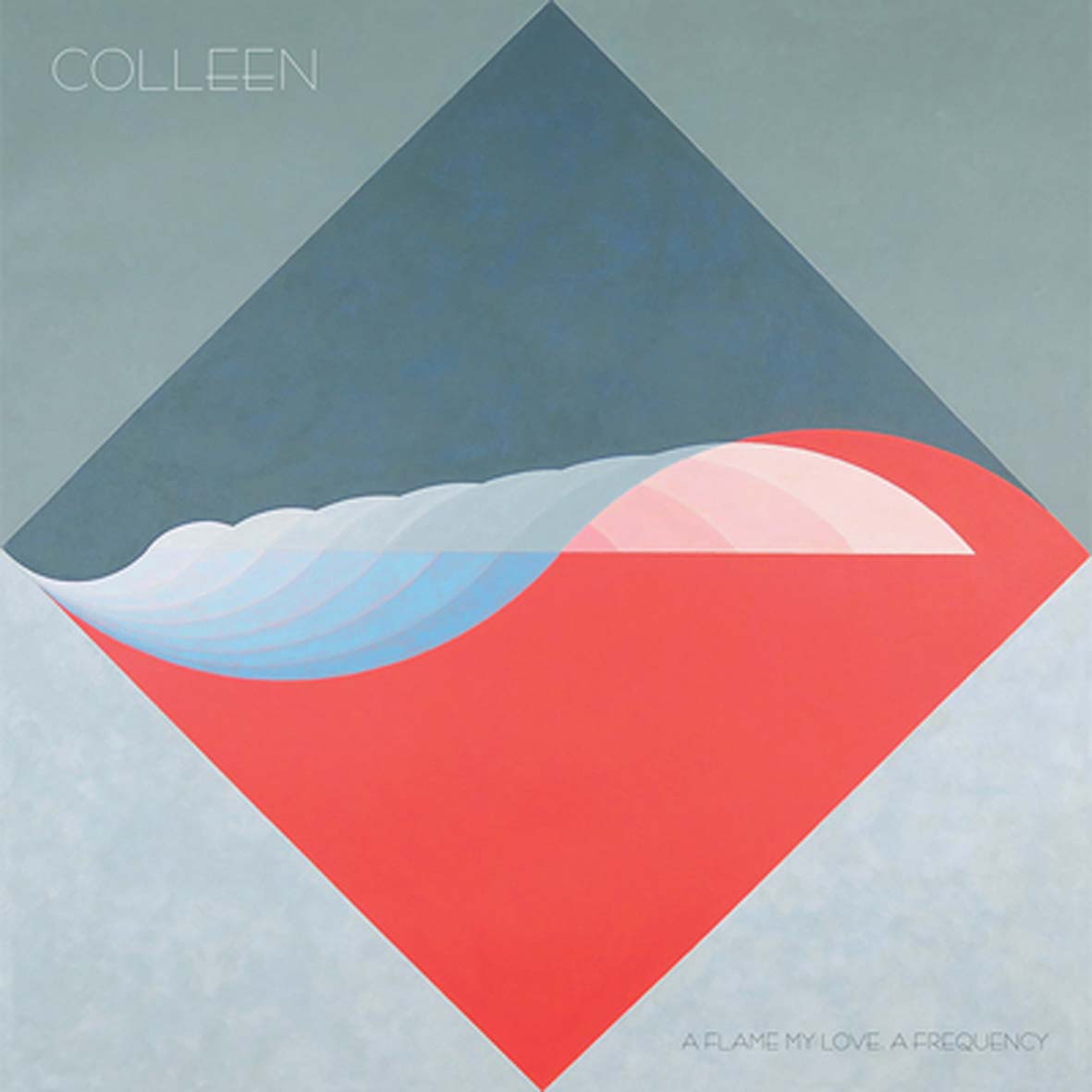 Cécile Schott has long been my absolute favorite kind of artist: the kind who thoughtfully and quietly pieces together wonderfully distinctive albums and tends to only surface when she has something new and intriguing to say. As a result, being a Colleen fan has been a deliciously unpredictable slow-motion rollercoaster that has taken some expectation-subverting turns over the years: most artists who come right out of the gate with a sublime and timeless masterpiece like Everyone Alive Wants Answers would just keep revisiting that success with diminishing returns, but Schott has tirelessly kept moving forward with each new album. That evolution reached a crescendo of sorts with 2015 vocal-centric Captain of None, shedding a lot of artifice to reveal a more intimate and direct incarnation of Colleen. In some ways, this latest album continues that trajectory, but it also finds Schott setting her viola da gamba aside for a synthesizer. Admittedly, I tend to shake my head sadly whenever someone makes a synth album these days, but Schott has managed to bend those electronics to her will rather than falling under their spell like so many others.
Cécile Schott has long been my absolute favorite kind of artist: the kind who thoughtfully and quietly pieces together wonderfully distinctive albums and tends to only surface when she has something new and intriguing to say. As a result, being a Colleen fan has been a deliciously unpredictable slow-motion rollercoaster that has taken some expectation-subverting turns over the years: most artists who come right out of the gate with a sublime and timeless masterpiece like Everyone Alive Wants Answers would just keep revisiting that success with diminishing returns, but Schott has tirelessly kept moving forward with each new album. That evolution reached a crescendo of sorts with 2015 vocal-centric Captain of None, shedding a lot of artifice to reveal a more intimate and direct incarnation of Colleen. In some ways, this latest album continues that trajectory, but it also finds Schott setting her viola da gamba aside for a synthesizer. Admittedly, I tend to shake my head sadly whenever someone makes a synth album these days, but Schott has managed to bend those electronics to her will rather than falling under their spell like so many others.
Colleen's newly electronic-based aesthetic came about in something of an accidental way, as Schott originally picked up a synth with the modest intention of creating an additional rhythmic element for her viola da gamba-based work.That experiment was not entirely successful, but proved to be fruitful enough to inspire the purchase of a second synth and led Schott into exploring what could be done with her signature viola da gamba taken out of the picture altogether.On one level, that seems like a bit of a curiously self-sabotaging decision, as a significant part of Colleen's appeal and mystique has always been how hermetic, otherworldly, and anachronistic Schott's aesthetic can be.A lot of Colleen albums feel like they could have been made by an impossibly wise and sad fairy tale princess confined to a tower, viewing the world exclusively through her unreachable window.Making a synth-based album dispels a lot of that illusion and places Colleen quite squarely in 2017.The fundamental Colleen-ness of Schott's vision cannot be so easily shaken off though and A Flame My Love favorably recalls the more primitive and intuitive outsider strangeness of private press New Age visionaries from decades past far more than it does anything happening now.Also, since she started singing, one of the most transfixing elements of Schott's work has been the poetic and hushed confessional intimacy of her vocals.The backdrop may have changed, but it still feels like Schott is attempting to share some kind of enigmatic secret, heartache, or ineffable revelation with me.
At times, Schott embraces her new electronic muse in a way that seems like a natural evolution from her previous work, such as "Summer Night (Bat Song)," which sounds like a dreamlike organ reverie that gently undulates, blurs, and shimmers like a lysergic medieval mass.The closing title piece takes a similar approach, often sounding like a breathy, lilting melody sung over a simple backdrop of sustained accordion chords, though it has an unexpectedly free and amorphous structure.Elsewhere, there are a handful of instrumentals where Schott is clearly experimenting with the strange and beautiful sounds she can wrest from her new synth/delay pedal combination.To her credit, pieces like "Another World" and "One Warm Spark" already a display a unique and distinctive aesthetic of erratically pulsing, burbling, and churning arpeggios.The best pieces, however, are simply the ones that transpose the structured, idiosyncratic "pop" aesthetic of Captain of None into electronic form.The centerpiece of the album is "Winter Dawn," which creates a dense and vibrant polyrhythm of blooping pulses that builds to a haunting chorus where Schott’s words are trailed by ghostly afterimages."Separating" is similarly beguiling, as a spectrally lingering vocal melody languorously unfolds over a throbbing and hallucinatory fantasia of pulsing and liquid synth motifs.
As a whole, A Flame My Love is a fairly adventurous and strong album, but it feels more like an intriguing transitional album rather than a fresh masterpiece.It certainly still sounds like a Colleen album and Schott handles her radical evolution with an impressive degree of nuance, elegance, and ingenuity: there are no real missteps to be found and I would be hard-pressed to identify any clear influences or artists who have recorded anything similar.Unfortunately, past Colleen albums have yielded a number of pieces of absolutely transcendent and otherworldly beauty ("Everyone Alive Wants Answers," "Summer Water," etc.) and this album merely offers a few fine and hooky new songs.For most artists, that would be ample cause for celebration, but Schott has historically set a very high bar for Colleen, making this is a very good album by a historically great artist.That is not to say that Schott's vision has dulled at all, however: A Flame My Love documents kind of a necessary step towards adapting this project more towards live performances and touring.Colleen has already recorded plenty of wonderfully elaborate, introspective bedroom-recorded dreamscapes, chamber pieces, and starkly lovely art-pop gems and none of that needed to be repeated.With this album, Schott finds a way to maintain the soul of Colleen in a more muscular, accessible, and "just plug-in and play" way.In that regard, A Flame My Love is unquestionably a success, but it is more of an enjoyable gateway to some of Schott's deeper work than a new high-water mark.
 
 
Read More
- Administrator
- Albums and Singles
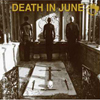 Among the most diverse entries in their catalog, Nada! is the sound of two very different individuals creating one distinct album. With the departure of Tony Wakeford, the band pretty much dropped the electric post-punk sound that characterized the earliest singles. What remains is about half acoustic ballads, and half gothic synth pop, but somehow feels like a coherent whole, and for me remains one of their best albums ever.
Among the most diverse entries in their catalog, Nada! is the sound of two very different individuals creating one distinct album. With the departure of Tony Wakeford, the band pretty much dropped the electric post-punk sound that characterized the earliest singles. What remains is about half acoustic ballads, and half gothic synth pop, but somehow feels like a coherent whole, and for me remains one of their best albums ever.
Personally I have never been too concerned with the pseudo-politics and politically incorrectness of the band, which is one of the reasons opinions on them is so decisive.For the most part, other than the militaristic rhythms and references to Klaus Barbie on "C'est un Reve," there’s not a whole lot of National Socialism to be found here, but a fair helping of nihilism and sadness abound.
The acoustic folk songs are, unsurprisingly, the ones courtesy of DIJ mainstay Douglas Pearce, the nascent sound that he would ram into the ground over the next 25 years, with diminishing returns.Here it’s not just a matter of it being fresh, there's also just a greater depth in arrangement and variety of songwriting.Songs like opener "The Honour of Silence" and "Behind the Rose (Fields of Rape)" remain among his strongest compositions, and have just the right amount of drama and bombast to accompany the guitar and vocals.
The classic "She Said Destroy," featuring David Tibet, continues this, leaning more into the pop realm than the other two, but losing none of the mystique.This is what makes this album stand out in the DIJ discography:the songs are catchy and memorable.For me, starting around The Wall of Sacrifice and continuing to the present day, too many of the songs since then simply disappear into the same mire of acoustic guitar and esoteric lyrics, mostly indiscernible from one to the other.Here each are distinct and powerful, never blurring into another track.
The other half of the album is mostly the work of Patrick Leagas, prior to forming Sixth Comm, and has a decidedly synth pop bent to it.Between the chintzy drum machines and rudimentary keyboards, it sounds very much a product of the era.For me, that’s not a problem at all, and it only adds to the quality of songs like "Rain of Despair," which sounds like nothing else the band has ever did with its almost dance-floor oriented drum programming and focus on rhythms more than vocals.
Even with these disparate approaches being used, there is a sense of unity that comes throughout:Leagas' "Foretold," while almost all programming and synths, has the same dark intensity that the folk tracks from Pearce specialize in.At the same time, the Pearce-sung "C'est un Reve" and "Crush My Love" also are far more synthetic than most of his work, yet still very much feel right.
For some reason, the earliest CD issue of this album via World Serpent tacked the bonus tracks to the beginning, while the more recent (and far superior) reissue via Tesco Organisation places them correctly at the end.A combination of B-sides and compilation tracks, to me they have always felt an essential piece of the album.The original version of "The Calling" appears here to balance its "Mark II" album take.Perhaps the best illustration of the dichotomy at play here, the original version relies mostly on Douglas' acoustic guitar playing, while the second version is all about the synths and sequences.
Also in dramatic contrast, the compilation track "The Torture Garden" is among the most avant garde of their early career, with its militaristic keyboards, Gregorian chants and drama infused vocals, which is nearly the polar opposite of "Born Again", a perfect little piece of synth pop that, in a more just world, would have been highly acclaimed upon release.
Like all of the reissued DIJ catalog, the Tesco-assisted reissue blows away the original, with much higher quality artwork and packaging, a quality mastering job, and an overall greater feeling of care in comparison, not to mention a much lower price tag.
Picking a favorite out of Death in June's early work isn't easy for me, because the holy trinity of this, The Guilty Have No Pride, and The World That Summer are all so different, yet brilliant in their own unique ways.Nada! would perhaps win by a hair, though it is a very close race.While Pearce seems to be content to follow a very formulaic approach to recording new work, while simultaneously reissuing mid-period albums in overpriced special packages with castoff tracks and re-recordings, it is work like Nada! that, to me, gives me hope with each new release, though disappointment almost always follows.
samples:
 
Read More
- Administrator
- Albums and Singles
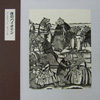 Whenever a new vinyl release by Andrew Chalk surfaces, several things are fairly certain: it will be a beautiful object, it will be expensive, and it will be worth it.  Packaging-wise, Violin by Night hits impressive new heights in both lavishness and mystery.  The corresponding songs, on the other hand, are atypically brief and melodic, often more closely resembling a damaged Romantic classical recording than anything drone-like.
Whenever a new vinyl release by Andrew Chalk surfaces, several things are fairly certain: it will be a beautiful object, it will be expensive, and it will be worth it.  Packaging-wise, Violin by Night hits impressive new heights in both lavishness and mystery.  The corresponding songs, on the other hand, are atypically brief and melodic, often more closely resembling a damaged Romantic classical recording than anything drone-like.
The album opens with "A New Heaven," unfolding a gentle, submerged-sounding piano or harmonic motif over a very minimal, murky, and vaporous bed.  It is extremely simple melodically, but Chalk creates some impressive things dynamics, making all the notes ripple, shimmer, and decay like droplets on a moonlit pool.This sets the tone for the album quite beautifully, as almost everything that follows seems evocative of some sort of remote nocturnal grove.  It isn't entirely an idyllic one though, as the album is populated with a number of pieces ("Violin by Night," for example) that feel elusive and spectral, drifting in and out of the sonic foreground like a strange, shifting mist. It is difficult to tell exactly what Chalk is playing on individual pieces due to the heavy processing (and because the liner notes are entirely in Japanese), but much of the album sounds like someone playing a lonely, melancholy organ solo somewhere in the distance, only snatches of which are audible due to the vagaries of the wind and the acoustics of the surrounding landscape.
Of course, there are a number of exceptions.  "Red Horse," for example, is very much a drone piece, augmenting its darkly queasy underbelly with some sort of bizarre overtone experiment that doesn't quite sustain my interest.  The other departures work much better though, as the shadowy, flange-heavy "Then and Now" sounds like a chamber ensemble heard though a thick fog of hallucinogens while "The Falling City" sounds like an understated, less emotionally ravaging cousin to one of Arvo Pärt's more sorrowful string pieces ("Cantus in Memory of Benjamin Britten," for example).  "The Falling City" is an uncharacteristically melodic and unprocessed work for Chalk, achieving an impressive orchestral grandeur that is not at all what I have come to expect from him.
It is difficult to say where this release falls within Chalk's ouevre quality-wise, as he's responsible for a number of stellar albums.  The important thing is that it is almost uniformly excellent, although the increased focus on melody coincides with a necessary decrease in song length–I miss the immersiveness of Chalk's more long-form work, as some of these songs are over before they fully take hold of me.  Also, I always appreciated that his work asked a lot of patience and focus from me as a listener.  The occasional overt melodies on Violin by Night may be a bit simpler and more accessible, but the shifted balance between space, texture, and melody works quite nicely and I would certainly be happy with wider recognition and increased demand for Andrew Chalk albums.  I can't complain.  Andrew might though, as the physical packaging for this album was handmade and seems like it was pretty damn labor-intensive (cloth, wood, great anthropomorphic animal art, everything in kanji, etc.).
Samples:
Read More
- Administrator
- Albums and Singles

The US edition of Electric Eden was published on Tuesday 10 May (Faber via Farrar, Straus & Giroux). Revised, updated and corrected!
In this groundbreaking survey of more than a century of music making in the British Isles, Rob Young investigates how the idea of folk has been handed down and transformed by successive generations – song collectors, composers, Marxist revivalists, folk-rockers, psychedelic voyagers, free festival-goers, experimental pop stars and electronic innovators. In a sweeping panorama of Albion’s soundscape that takes in the pioneer spirit of Cecil Sharp; the pastoral classicism of Ralph Vaughan Williams and Peter Warlock; the industrial folk revival of Ewan MacColl and A. L. Lloyd; the folk-rock of Fairport Convention, Sandy Denny, Nick Drake, Shirley Collins, John Martyn and Pentangle; the bucolic psychedelia of The Incredible String Band, The Beatles and Pink Floyd; the acid folk of Comus, Forest, Mr Fox and Trees; The Wicker Man and occult folklore; the early Glastonbury and Stonehenge festivals; and the visionary pop of Kate Bush, Julian Cope and Talk Talk, Electric Eden maps out a native British musical voice that reflects the complex relationships between town and country, progress and nostalgia, radicalism and conservatism.
A wild combination of pagan echoes, spiritual quest, imaginative time-travel, pastoral innocence and electrified creativity, Electric Eden will be treasured by anyone interested in the tangled story of Britain’s folk music and Arcadian dreams.
‘Like its subject, this wonderful and informative book is full of surprises; a deep poetic sense runs alongside adroit analysis, absorbing narrative detail and lucid, singular overview. Young has charted a territory that is sodden with mystery and tunnelled under with ceaselessly interconnecting themes and ideas – it is as much a state of consciousness that his book describes, connecting sun-lit myths of ‘merrie England’ to a bewitchingly autumnal study of English music’s profound relationship with time and the land.’
Michael Bracewell
‘Electric Eden maps the secret aquifer beneath the flourishing landscape of British musical creativity over the last century: the country’s heathen heritage of folklore andfancy, ritual and magic, tall tales and stubborn superstitions. Roving from time immemorial to modern antiquarians like Julian Cope, via the pioneering folk song collectors of the early 20th Century, the psychedelic minstrels of the late 1960s, and 70s mavericks like John Martyn and Kate Bush, Rob Young has crafted a vivid and penetrating study of this old, weird Albion. Electric Eden is a stunning achievement.’ Simon Reynolds
Read More
- Administrator
- Albums and Singles
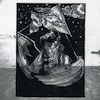 This is the latest EP by Jakob Battick’s group combines folk and psychedelic experimentation with slow motion arrangements; the group wear their influences on their sleeves but manage to distinguish themselves from their musical ancestors and their peers through their mixing of styles. Bloodworm Songs is by no means perfect (the recording quality is distinctly low fidelity and the more experimental segments are rather tame) but there is certainly diamonds hidden amidst the rough.
This is the latest EP by Jakob Battick’s group combines folk and psychedelic experimentation with slow motion arrangements; the group wear their influences on their sleeves but manage to distinguish themselves from their musical ancestors and their peers through their mixing of styles. Bloodworm Songs is by no means perfect (the recording quality is distinctly low fidelity and the more experimental segments are rather tame) but there is certainly diamonds hidden amidst the rough.
 
The opening piece, "My First Bloodworm Song (Up in the Sky)," reminds me very much of Thee Silver Mt. Zion’s "Broken Chords Can Sing a Little" from their first album; both groups combining shortwave radio broadcasts and haunting, minimal music to great effect. However, I was a little worried that Battick and his group might end up following this formula for the rest of the EP as there are only so many scratchy radio sounds I can take in one sitting. Thankfully, the remainder of Bloodworm Songs sees Battick and his friends creating gorgeous songs in their own style, moving away from the template set out in the opening piece.
As aforementioned, the recording quality is not exactly the industry standard; "Leper K" sounds like it was recorded on an answering machine but this blurred and dusty recording suits the vibe of the song as a collection of voices merge together over some gently strummed guitars and insistent violins. "Three Orphans" continues this thread as the group sounds like The Angels of Light if Fleet Foxes were in charge of the reverb pedal and vocal harmonies. Yet, as nice as this sounds, I feel Battick is holding back. His voice stays in a monotone when it sounds like he should be able to put potency and variation into his delivery.
The only piece I do not particularly enjoy on the EP is "Our Second Bloodworm Song (Fed Through Isinglass)" where the group create a noisy din out of scraped violins. It should be right up my alley but it seems a bit forced (especially with the comments in the sleeve notes about "Most people will stop listening before the end of this song"). The memories of this interlude are thankfully blotted out by the EP’s final song "Nine Brothers & The Wolf" where all my criticisms above about Battick’s voice are addressed which shows that he is as capable as I expected he was.
While this is not a perfect release, Battick and his colleagues show promise. With a more focused approach they could definitely put together a far stronger recording and hopefully their forthcoming full length release will build on the foundations laid here. That is not to denigrate Bloodworm Songs, despite its flaws it has a lot more character than many of the CDs that end up coming through my letterbox.
samples:
 
Read More
- Administrator
- Albums and Singles
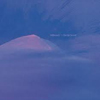 The album opens with the title track, a long piece brooding with psychological horror. Panning back and forth with ominous repetition it digs into me, beneath the surface, and I want to shed my skin. Oppressive and claustrophobic I clamor for air. This song feels like the moment of anxiety just before a peak experience. Once the summit of the mountain is reached however, the exultation and triumph incumbent upon a job well done kicks in and the rest of the album is crisp, vast, stretching without pause from horizon to horizon, clear as the hoarfrost on the arctic tundra.
The album opens with the title track, a long piece brooding with psychological horror. Panning back and forth with ominous repetition it digs into me, beneath the surface, and I want to shed my skin. Oppressive and claustrophobic I clamor for air. This song feels like the moment of anxiety just before a peak experience. Once the summit of the mountain is reached however, the exultation and triumph incumbent upon a job well done kicks in and the rest of the album is crisp, vast, stretching without pause from horizon to horizon, clear as the hoarfrost on the arctic tundra.
In common with the rest of the deep and benevolent ambience presented on the album "Aurora Performs It’s Last Show" captures expansive feelings of freedom by recreating the sounds of unbounded open space. Alessandro Tedeschi, who runs the Glacial Movements label, here presents his own distillation of sounds from the Northern Lights. It is another fine example of the isolationist aesthetic the label specializes in. A slow cycling of notes opens the song, which exists in the nether regions of dawn or twilight, a liminal space between regions. Leaking into the washed out glissandos is a corrupt transmission, a broken voice speaking through static. As regular readers may remember, I’m a big fan of the use of radio broadcasts, whether sampled or sourced live during a performance, in the creation of music. And while this tactic or gimmick doesn’t work with everything, when done well, it often produces startling results. On this piece it is used in minimal amounts, while still giving the song added texture and depth.
The centerpiece of the album is "Iceblink - Aurora Borealis Mix." A long lulling loop, resonant on the low end, is caressed by a cold northern wind. Higher octaves gradually emerge, short but repeating overtones, which harmonize with the ever present drone. Sprinkles of brittle bells and the cracking of ice are the only dramatic events in this piece which is less about narrative than about spatial awareness. "Crystallize Words" can rest comfortably alongside the classics of dark ambient. Low in the background or off in the distance, the pounding a bass drum brings back for a moment the sense of impending dread felt while listening to the title number–but it is not as all consuming. Symphonic strains swirl through the cold, as a faint voice murmurs, perhaps a memory or a ghost.
"Thoughts Locked In The Ice" give this listener some breathing space again. The pauses, gaps, and brief snippets of near silence are like breaks between snow storms, the clear terrain between deep blankets and heavy drifts. One of the most meditative pieces on the album, the simple textures recur over and over again, faithful as a treasured mantra. The last piece, "Iperborea," is the most otherworldly of the bunch, and rightly so as the title of the song is Italian for Hyperborean. To the ancient Greeks Hyperborea was the land in the far north where the sun shined for 24 hours a day. The steady pulses and shimmers of this song and this album took me to a similar place: both bright and cold.
samples:
 
Read More
- Administrator
- Albums and Singles
 I haven't had this much of a hard-on over an album since Colder's Heat. Marry Me Tonight (actually from 2009) is an almost purely emotional experience, with nine songs that in various levels combine ominous and chugging bass lines, creepy guitar (imagine that sound Wire toyed with on "Single KO"), a cold 808-supplied rhythm, a particularly endearing crudeness, and perverse lyrics with a disaffected delivery. This is a wet dream of a teenager overpowered by his or her hormones with enough pent up angst to send most adults into therapy.
I haven't had this much of a hard-on over an album since Colder's Heat. Marry Me Tonight (actually from 2009) is an almost purely emotional experience, with nine songs that in various levels combine ominous and chugging bass lines, creepy guitar (imagine that sound Wire toyed with on "Single KO"), a cold 808-supplied rhythm, a particularly endearing crudeness, and perverse lyrics with a disaffected delivery. This is a wet dream of a teenager overpowered by his or her hormones with enough pent up angst to send most adults into therapy.
Blast First Petite
Pronounced "Hate Rock Trio," this male/male/female group originated in Melbourne, moved to Berlin, released a seven-song EP, Nostalgia, in 2007 on Fire (after sending a demo to my own Killer Pimp label, which I'm kicking myself because I can't remember listening and it probably got lost in the shuffle), moved to London and between 2008 and 2009, released this full-length album and a couple singles. Sadly, Sean Stewart (who co-founded the group along with Nigel Yang) passed in March of 2010.
The strong emphasis on rhythm, via a pounding bass guitar and 808, coupled with the dissonant guitar is immediately attention commanding, fresh from the opening song "Ha." "Rentboy," however is where the mighty and lovable hooks come into play. Lyrically, the songs speak volumes to the teenager inside me: there's nothing subtle here. Don’t expect any deep thoughts—there is no opacity as everything is explicit—just nine songs that are easy to learn and sing about obsession, possession, domination, and aggression.
"and everyone in the room you're giving it to
And everyone in the room you've had once or more
I'll pretend that i'm new
I'll act surprised when it ends
And when you're overdue
I'll watch you over and over again rentboy"
Sure it’s not anything new, but the songs are wonderfully catchy. Songs like "Panties" have teeth-gnashing guitar noise reminiscent of World Domination Enterprises while "Shoot You Up" has some powerful bass slappage going on.
"When you get home
He'll suck you off 'cause he's hanging out to get closer
I'm with my friend
She's fucked up but she'll shoot you up
She'll shoot you up to get closer"
The group seems as unapologetic as the lyrics would suggest, just do a Google image search for HTRK and their full-frontal publicity shot is one of the most common hits.
Hate Paul Smith or fucking hate Paul Smith, the man has great taste in music (he has been irresponsible in one way or another for Cabaret Voltaire, Sonic Youth, Labradford, Throbbing Gristle, Suicide, Panasonic, Wire, Rivulets, and Effi Briest, just to name a few). Given this album came out over two years ago on Blast First Petite but never made (deservedly) big waves across the waters, I can only imagine that Smith priced every prospective label out of the market. I can't blame him, however, as the production job by the late Rowland Howard (The Birthday Party) is flawless and probably wasn't cheap. HTRK continues on without Sean Stewart and a new album is due this year.
samples:
 
Read More
- Administrator
- Albums and Singles
 Akron's one-man debut nods to influences such as Delia Derbyshire and Joe Meek but cannot begin to approach the originality or spirit of experiment of those legends. Yet the best of these pieces are odd exotic bleeping echoes which did transport me to other worlds, just perhaps not the ones intended.
Akron's one-man debut nods to influences such as Delia Derbyshire and Joe Meek but cannot begin to approach the originality or spirit of experiment of those legends. Yet the best of these pieces are odd exotic bleeping echoes which did transport me to other worlds, just perhaps not the ones intended.
Akron is a new name to me and there is enough charm in this album to ensure I will seek future releases. The title, however, Voyage of Exploration points to space travel, rather than to a more natural terrain for this music. This is inner space music, more reflective of progress in other scientific technologies, such as the invention of the microscope and the digital circuit, which have revealed inner worlds while igniting a revolution in art and spirituality every bit as inspiring as that which has resulted in space flights and, well, rocket science.
So, beyond the obvious references to Meek, sci-fi, and lounge-exotica, Akron's pieces are well suited to a miniature aesthetic as opposed to a macro one. Digital and cellular worlds come to mind, of genome topography, video games, and popular culture as in the film Fantastic Voyage, wherein a crew (including Raquel Welch) shrunk to .1 microns (or 250,000 times smaller than her 5'6 stature) board a submarine designed at the C.M.D.F. (Combined Miniaturized Deterrent Forces) facility and are injected into a human patient with one hour to remove a life-threatening clot. Certainly the album could use more instrumental variety. If these are supposed to be nine new worlds then they seem remarkably similar to 1970s episodes of Dr Who; in that these distant planets all start to resemble a couple of quarries just outside London. In fairness, I expect Akron's budget is not much more than the BBC's for those shows, but imagination costs nothing. I don't want to travel to any planet depicted in such unimaginative titles as "Rabbits in Orbit" and "Frog War Chant."
The aspect of exploration of a digital world made sense to me when playing the final track in my car while transporting some high school art students. I had already decided this mournful piece was my favorite, before i knew that it was called "Funeral for Euclid." As we drove one of the students suddenly asked what it was and announced:
"It sounds like music from a video game in the middle of a quest when you've just defeated a mid-level boss of evil and you're walking out of town with lots of gifts and bonuses but it's bittersweet because one of your friends has been killed in a cut-out scene."
This is not a poor record, but after a few listens I began to feel I was in the title story from David Eagleman's Sum: Forty Tales From The Afterlife. In that tale we live our life over again but "all the moments that share a quality are grouped together. You spend two months driving the street in front of your house, seven months having sex. You sleep for thirty years without opening your eyes. For five months straight you flip through magazines while sitting on a toilet." I'm not sure what activity is suggested by, or could be soundtracked by, Voyage of Exploration, but it may be slicing bread or washing hair. Something mildly pleasant but not ecstatic or very exciting. And that figure for sex is depressingly low now I look at it.
Read More
 Akron's one-man debut nods to influences such as Delia Derbyshire and Joe Meek but cannot begin to approach the originality or spirit of experiment of those legends. Yet the best of these pieces are odd exotic bleeping echoes which did transport me to other worlds, just perhaps not the ones intended.
Akron's one-man debut nods to influences such as Delia Derbyshire and Joe Meek but cannot begin to approach the originality or spirit of experiment of those legends. Yet the best of these pieces are odd exotic bleeping echoes which did transport me to other worlds, just perhaps not the ones intended.
Akron’s charming one-man debut nods to influences such as Delia Derbyshire and Joe Meek but cannot begin to approach the originality or spirit of experiment of those legends. The best of these pieces are odd exotic bleeping echoes which did transport me to other worlds, just perhaps not the ones intended.
Akron is a new name to me but there is enough charm in this album to ensure I’ll look out for future releases. If Voyage of Exploration is also disappointing, which I think it is, then perhaps that is because the title points to space travel, which lost part of its luster a while back, rather than to a more natural terrain for this music. I feel this is inner space music, suggestive of progress in other scientific technologies, such as the invention of the microscope and the digital circuit. These have revealed inner worlds while igniting a revolution in art and spiritual aspects every bit as inspiring as that which has resulted in space flights and, well, rocket science.
Beyond the obvious references to Meek, sci-fi, and lounge-exotica, Akron’s pieces are well suited to a miniature aesthetic as opposed to a macro one. Digital and cellular worlds come to mind, be those genome topography, video games, or popular culture - as in the film Fantastic Voyage, wherein a crew -including Raquel Welch shrunk to .1 microns, or 250,000 times smaller than her 5’6 stature -board a submarine designed at the C.M.D.F. (Combined Miniaturized Deterrent Forces) facility and are injected into a human patient with one hour to remove a life-threatening clot.
Certainly the album could use more variety. If these are supposed to be nine new worlds then after awhile they seem remarkably similar to certain i970s episodes of Dr Who, in that these distant planets all start to resemble a couple of quarries just outside London. In fairness, I expect Akron’s budget is not much more than the BBC’s for those shows, but imagination costs nothing. I don’t want to travel to any planet depicted in such unimaginative titles as “Rabbits in Orbit” and “Frog War Chant.”
The aspect of exploration of a digital world made sense to me when playing the final track in my car while transporting some high school art students. I had already decided this mournful piece was my favorite, before i knew that it was called “Funeral for Euclid.” As we drove one of the students suddenly asked what it was and announced:
“It sounds like music from a video game in the middle of a quest when you've just defeated a mid-level boss of evil and you're walking out of town with lots of gifts and bonuses but it's bittersweet because one of your friends has been killed in a cut-out scene."
This is not a poor record, but after a few listens I began to feel I was in the title story from David Eagleman’s Sum: Forty Tales From The Afterlife. In that tale we live our life over again but “all the moments that share a quality are grouped together. You spend two months driving the street in front of your house, seven months having sex. You sleep for thirty years without opening your eyes. For five months straight you flip through magazines while sitting on a toilet.” I’m not sure what activity is suggested by Voyage of Exploration, but it may be slicing bread or washing hair. Something mildly pleasant but not ecstatic or very exciting. And that figure for sex is depressing low now I look at it.


